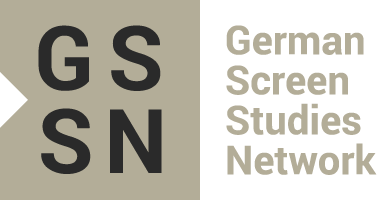Date & Location: 21-22 March 2024, University of Warwick
Organizers: Molly Harrabin (University of Warwick) and Lawrence Alexander (Freie Universität Berlin)
GSSN would like to promote the CfP for the forthcoming event “Entrenched Narratives” that comes out of the GSSN’s scholarly interest group at the British Association of Film, Television and Screen Studies (BAFTSS).
In February 2022, German chancellor Olaf Scholz gave a speech to the German parliament in response to and denunciation of the Russian invasion of Ukraine. Describing the moment as a ‘turning point’, Scholz referred to Putin’s act of aggression as a watershed moment that altered geopolitical reality and announced a volte-face in Germany’s defence and energy policies. This conference adopts the contemporary moment, which also sees the reality and spectre of armed conflict across many parts of the Global South, as an inflection point for reconsidering representations of war across a range of screen media: from narrative cinema to moving image installation; streaming to VR.
While the First and Second World Wars have long formed tropes in German cinema and representations of the nation’s history abroad, recent years have seen leading artists such as William Kentridge and John Akomfrah offer alternative, counter-historical accounts of these otherwise familiar chapters of history. There is also a tradition of moving image practitioners – from Walter Heynowski and Gerhard Scheumann to Harun Farocki and Hito Steyerl – who have voiced opposition to conflicts from Vietnam to the so-called ‘War on Terror’, while often interrogating the connection of the cinematic medium (and its histories) to the waging of war. Within the German national context, cinematic explorations of domestic terrorism and its legacies have placed a particular emphasis on the Rote Armee Fraktion and their actions in the 1970s, including Uli Edel, Volker Schlöndorff, Margarethe von Trotta, and Christian Petzold. Most recently, Edward Berger’s German-language remake of All Quiet On the Western Front, a co-production distributed for streaming globally by Netflix, attracted both critical acclaim and ire, prompting fresh questions surrounding the status of German (military) history as a cultural export for cinematic distribution and streaming worldwide.
Against this backdrop, this conference aims to understand the complexities of screening – and watching – war from critical perspectives in Film and Screen Studies that have gained in importance in recent years: including, but not limited to transnational approaches, intermedial studies, sound studies, disability studies, eco-criticism, and media archaeology. We also seek to draw attention to practitioners who foreground contestations of conventional gender and sexual identity; highlight the experience of racialized and colonized subjects otherwise expunged from official historical records; and explore (post)migrant and diasporic narratives of those fleeing war. This conference thus seeks to revise established narratives and illuminate hidden figures in the representations of war across German-language screen media.
Contributions addressing the following areas and themes are strongly encouraged, although papers are also invited on a range of subjects and approaches, including, but by no means limited to:
- Histories of conflict as a genre/trope in German screen media
- Representations of injury, disability, and physical or sensory impairment
- Representations of race and ethnicity
- Articulations of non-normative gender and sexuality
- (Post)colonial experiences of war and decolonial perspectives
- ‘War on Terror’ narratives
- Fleeing war including refugee and migrant narratives
- Reenactments: adaptations, remakes, and intermediality
- Transnational approaches
- Sounds of war
- Antiwar narratives
- Wartorn landscapes and eco-critical analysis
- Remediation and the archive
- Memories of war and its mediation in German screen media
The conference organizers are open to various modes of presentation, including more traditional papers as well as practice-based research and video essays. We welcome contributions from postgraduate and early-career researchers as well as more established scholars. Please send an abstract (300 words max.) and a short biographical statement to [email protected] by 30 November 2023. Notification of acceptance will be sent out in January 2024.
This conference is kindly supported by the BAFTSS Special Interest Group Funding Scheme.
Select Bibliography
Berendse, Gerrit-Jan, and Ingo Cornils (eds.), Baader-Meinhof Returns: History and Cultural Memory of Left-Wing German Terrorism (Amsterdam; New York: Rodopo, 2008)
Chapman, James, War and Film (London: Reaktion, 2008)
Cooke Paul, and Silberman Marc (eds.), Screening War: Perspectives on German Suffering (Rochester, New York: Camden House, 2010)
Demos, T. J, The Migrant Image: The Art and Politics of Documentary during Global Crisis (Durham, N.C.; London: Duke University Press, 2013)
Ehrig, Stephan, Benjamin Schaper, and Elizabeth Ward (eds.), Entertaining German Culture: Contemporary Transnational Television and Film (New York; Oxford: Berghahn, 2023)
Fisher, Jaimey, German Ways of War: The Affective Geographies and Generic Transformations of German War Films (New Brunswick, New Jersey: Rutgers University Press, 2022)
Fuchs, Anne, Phantoms of War in Contemporary German Literature, Films and Discourse: the Politics of Memory(Houndmills: Palgrave Macmillan, 2008)
Gerhardt, Christina, Screening the Rote Armee Faktion: Historical and Cultural Memory (New York: Bloomsbury Academic, 2018)
Kaes, Anton, Shell Shock Cinema: Weimar Culture and the Wounds of War (Princeton; Oxford: Princeton University Press, 2009)
Lewerenz, Susann, ‘“Loyal Askari” and “Black Rapist” – Two Images in the German Discourse on Nationalism Identity and their Impact on the Lives of Black People in Germany (1918-1945)’, in German Colonialism and National Identity, ed. by Michael Perraudin and Jürgen Zimmerer (London: Routledge, 2011), pp. 173-83
Moyd, Michelle R., Violent Intermediaries: African Soldiers, Conquest, and Everyday Colonialism in German East Africa (Athens, Ohio: Ohio University Press, 2014)
Roberts, Ian, ‘‘The Return of the Hero? Contemporary German War Films’, Journal of War & Culture Studies, 7.4 (2014), 365-380
Rothberg, Michael, Multidirectional Memory: Remembering the Holocaust in the Age of Decolonization, (Stanford, Calif: Stanford University Press, 2009)
———, The Implicated Subject: Beyond Victims and Perpetrators, (Stanford, California: Stanford University Press, 2019)
Roos, Julia, ‘“Huns” and Other “Barbarians”: A Movie Ban and the Dilemmas of 1920s German Propaganda against French Colonial Troops’, Historical Reflections, 40.1 (2014), 67 – 91
Virilio, Paul, War and Cinema: The Logistics of Perception (London; New York: Verso, 1989)
